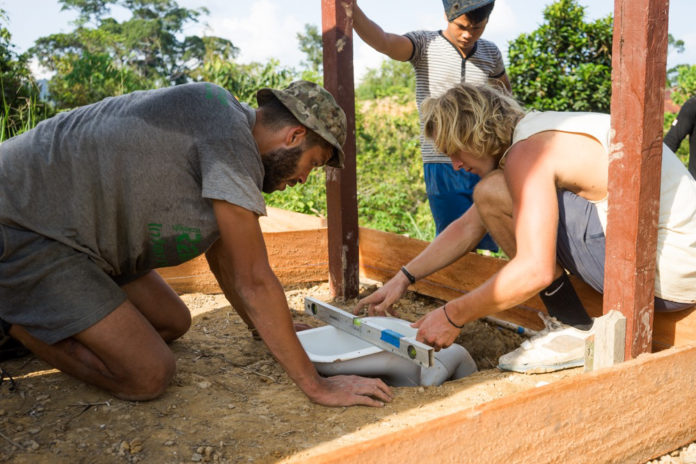Ahladini Veerina (junior) cried alone in a seedy motel room on Thanksgiving Day, 2015. The day before, she left California and her family. She was in Fiji, waiting to travel to her job as a summer camp instructor on the Yasawa Islands. This was the second leg of her journey during her gap year.
“My parents were sending me all these pictures of Thanksgiving dinner,” Veerina said. “I was so sad I probably cried for a day straight.”
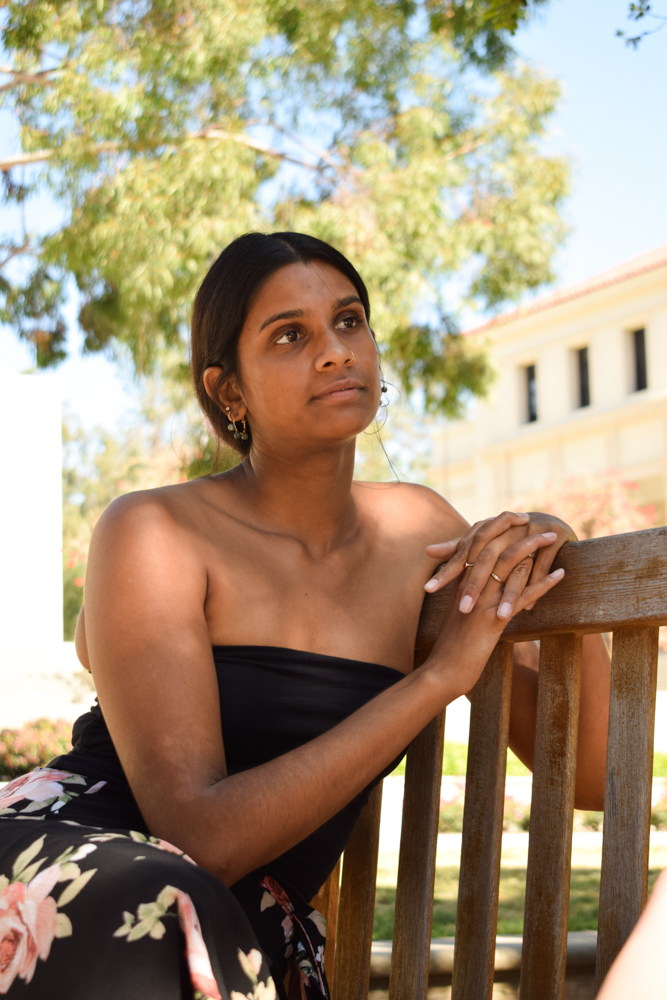
The Gap Year Association reports that gap years are substantially rising in popularity. Occidental typically accepts 18–24 gap year students each year, according to an email from Occidental’s Dean of Admission Vince Cuseo. Currently, only about 1 percent of the average American first-year class takes a gap year, according to the Gap Year Association. The growing trend is slightly behind countries like Norway, Denmark and Turkey, where approximately 50 percent of students take time off before resuming their studies, according to the Nordic Institute for Studies in Innovation, Research and Education. According to the Gap Year Association, gap years are popular for a number of reasons, but high school burnout and a desire for self-discovery are listed as the top two motives. To take a gap year at Occidental, students typically defer their enrollment after applying like other rising first years. After their year abroad, they enroll in the incoming class.
“Since the decision to take a gap year is idiosyncratic, our recommendation about whether to take a gap year depends on the circumstances,” Cuseo said via email. “That said, I think some students may benefit from interrupting a lockstep twelve plus years of formal education to pursue something experiential. They often return refreshed and intrinsically motivated to continue their education.”
Catherine Lee’s (sophomore) high school experience was characterized by judgement and self-doubt. She said the decision to take a gap year came out of a desire to have a broadening experience and an independent travel experiment before college.
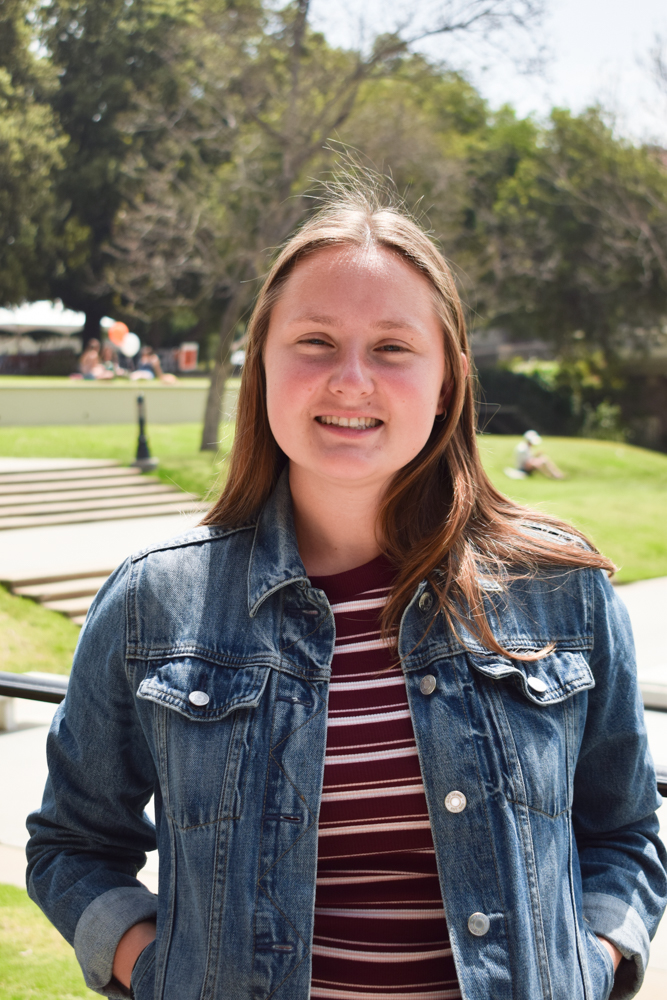
“High school is sad. You can quote me on that,” Lee said. “When I was younger I felt like I had opportunities to explore and be creative about the world, but then in high school, I felt like I was in a very small, tight world. My gap year allowed me to regain a lot of my curiosity and my interest in traveling and in meeting new people.”
Similarly, Ciaran Gilligan (senior) felt burned out after his high school experience. He decided to take a gap year because he did not think he could do another four years of school right after high school.
Jacques Pellet (first year) took a gap year because he wanted to take some time off to travel and work before going to school. He grew up in France with his French father and American mother and now lives in Wilson, WY. Even before his gap year, Pellet had significant travel experience. Still, Pellet said he felt the need to go abroad before college. He wanted to learn about the world without his family.
“I didn’t want anything from over there,” Pellet said. “It was a better way to explore what I know about the world, learn about the world, to be on my own without anybody in my family.”
Unlike some other gap year students, Veerina’s parents were the driving force behind her decision to take time before school because they said she was young for her grade in middle and high school. She did not object to the idea and left for Antigua, Guatemala in 2015. Veerina said many people at the time did not understand why she was taking a gap year.
“I would say, ‘Oh, I’m taking a gap year,’ and people would be like, ‘Are you okay?’” Veerina said.
On the first leg of her journey, Veerina was a teacher’s assistant in the mornings at a local preschool in Guatemala. She wanted to go to Guatemala to improve her Spanish and she succeeded; nobody spoke English there. In the afternoons, she worked at a coffee plantation.
After a month and a half in Guatemala, Veerina traveled to the Yasawa islands of Fiji to work at a summer camp for kids before going to Southeast Asia. During her nine weeks in Southeast Asia, she traveled with the program coordinator Pacific Discovery through Thailand, Cambodia, Laos and Vietnam. Before returning home to California, Veerina went to Italy with Art History Abroad. There, she and a group traveled through Italy with tutors who taught them about art for six weeks.

Abroad, Veerina tried not to worry about the past or the future and instead focused on the present moment. Rather than getting stuck in the loop of planning for careers or next steps, she was solely concerned with her activity on an everyday level.
“During, I was so open. I think I was the most open I have ever been. I was 17, which isn’t that long ago but it feels so young looking back at it now,” Veerina said. “I was living, every moment was the moment. In school, everything is forward-thinking, so your life is always thinking about the next step.”
Before Pellet could start his year abroad, he needed to earn money. Through the summer and fall of 2017, he worked in Maine. Afterward, Pellet traveled to Costa Rica where he worked at a bar owned by a friend in exchange for free boarding, and received little pay on top of that. He said one of the biggest draws was the surfing.

Pellet jetted to Australia with his sister at the beginning of January. They spent time in Melbourne and Tasmania, where they worked on a ranch for two weeks through the program World Wide Opportunities on Organic Farms.
After leaving Australia, Pellet traveled to Malaysia to participate in Raleigh International, a sustainable development charity based on a venture launched by Prince Charles. Their mission is to supervise young people while they work alongside marginalized communities to create development in those communities. Pellet said he was there for three months hiking in Borneo, building a bridge and improving clean water access for Malaysians living in rural areas.
He said his experience was a chance for him to self-reflect, become more independent and allowed him to broaden his view of the world. While Pellet said he always had a sense of adventure, these experiences during his gap year allowed him to mature.
“I don’t think I’ve changed that much. I’ve always been curious, outgoing, down, adventurous kind of kid. It’s made me different in the way that I can think more maturely about a situation now,” Pellet said.
Before he went abroad, Gilligan said he was a much less mature person.
“I don’t think I’m particularly mature now. But I thought I knew s—,” he said. “I thought I could conceive of a sort of worldly perspective and understand what that would mean or look like, but I was definitely a product of my environment still and pretty privileged.”
Gilligan had three separate legs of his journey. First, he spent four months in Peru and Ecuador with the gap year education program called Carpe Diem. It was a 10-member group expedition with a leader.
“South America was the first time I’d really left the country. It was four months and we were moving around quite a bit. We were going to the Amazon jungle for a couple of weeks and staying with homestays in Andes mountains, people who didn’t really have electricity,” Gilligan said. “It was definitely a bit of a culture shock initially.”
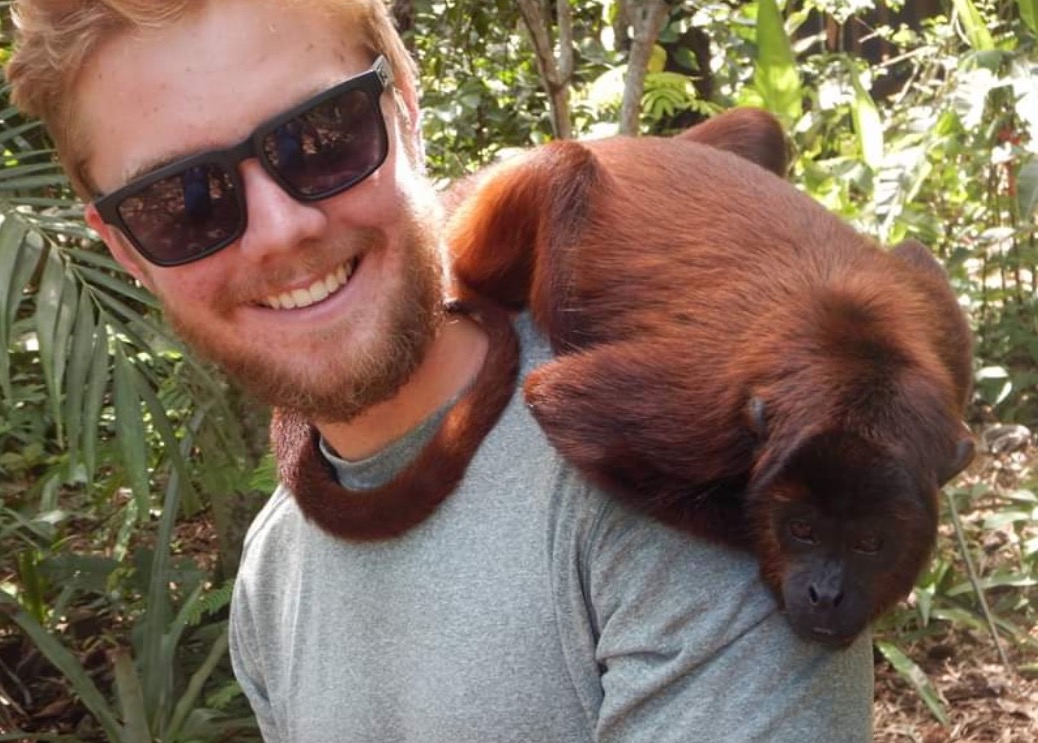
Next, Gilligan traveled to Australia and worked in the outback on a cattle ranch. Compared to his time in South America, there was no group leader to take responsibility for his well-being. Gilligan said that it was an intense experience he was not sure he was ready for at the time.
“The second leg was interesting, I was the youngest person there. There were a bunch of people working on the cattle ranch and most of them were older and I felt sort of young and immature,” Gilligan said. “I felt like I was not able to put up with these people who were like hardened cowboys. That really toughened me up. It was a really fun place to work, everyone partied super hard and worked super hard.”
During the last leg of his journey, Gilligan traveled in Europe where he backpacked and worked odd jobs in hostels or organic farms.
Lee spent nine months in Gwangju, South Korea as an exchange student with the Rotary Club. She lived with a Korean family and went to a Korean high school. She also spent some time in Japan. Then she went home and worked at Bruegger’s Bagels.

Lee had to learn Korean as fast as she could since many people did not speak English. In school, she understood virtually nothing for a long time, but she said her classmates were curious about her life and were very kind. To make friends, she was forced to learn how to communicate without using words. They had to find other ways of interacting, even if it was using sign language or watching a video together and laughing. It made her appreciate having English as a first language because it opened her up to such a broad population. Her teachers in Korea would remind her classmates that Korean was only spoken by approximately 1 percent of people in the world.
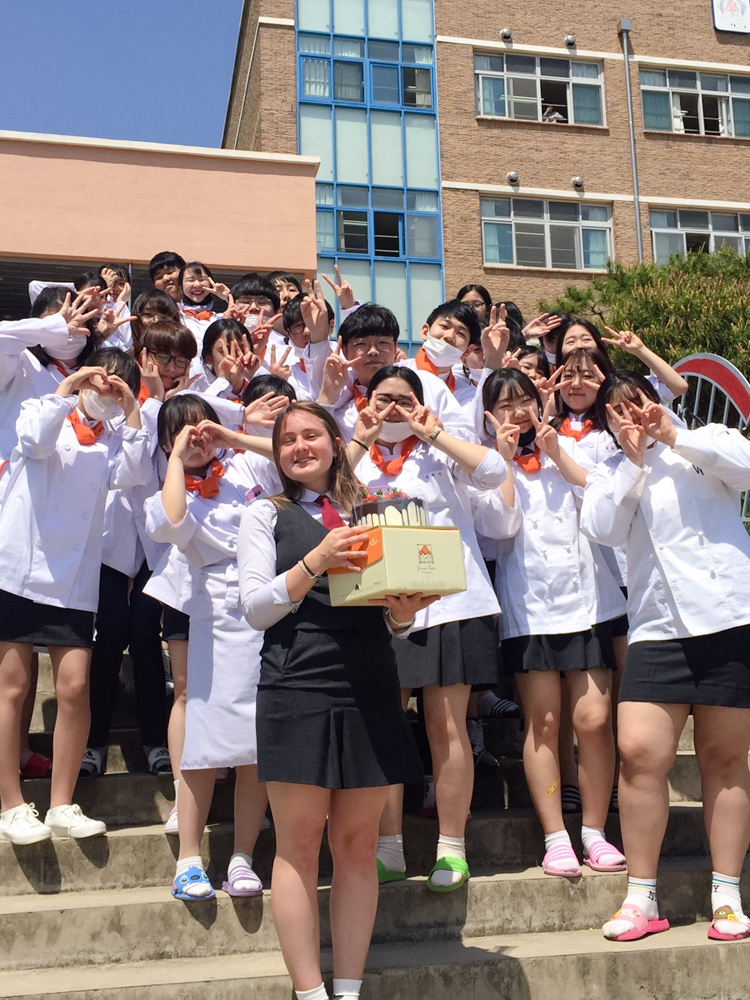
Lee said her gap year challenged her. It also gave her an opportunity to be curious and independent and helped her regain some of the confidence she lost in high school.
“On my gap year, I reconnected with myself. I was much more proud of myself,” she said. “I think probably the biggest lesson I learned was realizing how much more I’m capable of. You can go so much further than you think you can.”
According to Veerina, her gap year made her transition to college easier and she was less nervous about making new friends. Veerina said she was shy before going abroad, but she learned how to talk to people during her time away from home. She laughed when she said that talking to people was weirdly one of her biggest areas of self-growth.
“Before, I think I was not very self-assured or very self-aware just because I had been in the same place forever,” Veerina said. “I saw myself the way other people saw me. I think there were a lot of positive qualities I did not see in myself during that time.”
One of Gilligan’s biggest difficulties during his gap year was being alone. Gilligan said the logistics of living on his own without help could get exhausting sometimes. He would have to buy train tickets, book hotels and get around in countries where he did not speak the language. If he wanted to make friends, he would have to go out and do so knowing he would be leaving in three days.
“But you know, you sort of put your head down and just figure out how you’re going to get to the train station and where you’re going to sleep,” he said. “And that can sort of give you some direction. After a while, it also is taxing. You have to have the confidence that it’s gonna work out. Even though, you’re sort of alone.”

Veerina said her gap year experience was startling in ways she did not expect. Abroad, she was forced to confront the reality of being a woman and a person of color in ways she had not thought about at home in California.
“In the U.S., racism has become a lot more subtle, a lot more covert, a lot less detectable, but this was a little more overt in ways that I hadn’t experienced,” Veerina said. “That was definitely interesting and eye-opening and something I became a lot more aware of. It was difficult in ways that I didn’t really realize at the time.”
The difference in age and consequential emotional development can often lead to feelings of alienation upon the return to school for gap year students. Some first years enter Occidental as 17-year-olds. Pellet was 20. In comparison, most accepted gap year students are only a year or two older than their classmates, according to Cuseo.
“It’s definitely put me a little bit ahead but also in the back because I’m older and that’s definitely changed things. The fact that I’m three years older than some of these kids, that puts me back in that I’m not able to socialize in the same way,” Cuseo said.
Despite this, Pellet was hesitant to say he was different from his peers at Oxy.
“I can’t speak for them but I feel different in the way that I think about things just because I’ve seen other things. A lot of kids here haven’t even been out of the state or the country,” Pellet said.
Coming into her first year, Lee said she felt empty when her peers told her that her experience had been “cool.” It seemed like a flat, disingenuine response to her experience. She felt restricted by the lack of freedom in college compared to the time she spent in Korea.
“I felt stifled. For a lot of people, college is their first independent experience, it’s a step up, but for me, it was moving back toward high school because I’d had such a challenging gap year. Comparatively, college was so structured,” Lee said. “In that way, I couldn’t relate to people as well. What always blew my mind is that people had just been at prom four months before.”
Gilligan said students returning from gap years have to incorporate what they have learned during their time abroad. When he returned home, he struggled to find his place in his old environment. Gilligan felt like he had changed, but everything at home stayed the same.
“That can be sort of frustrating and degrading almost. I had all this experience, all these great times, why am I not like, suddenly a better, more insightful, more experienced person?” Gilligan said. “And you can’t just come back to the same place that you’re at and assume that everything is going to be different now. And I was always shocked with how nothing seemed to change … everything look the same but I felt like I was different.”
As a sophomore, Lee said she feels she has had more time to digest her experience abroad.
“Now, I feel like I’ve processed it much more. I feel like I’ve integrated with my surroundings,” Lee said. “I feel less different than people now. Also, even though it’s a very big experience, you realize that it’s only like 10 months and that I can’t let it be the dominant part of my life.”
Gilligan said coming back home and entering his first year was difficult after his time abroad. His gap year had been intense, and it felt like he had not truly absorbed it by the time he started college. Sometimes he had trouble relating to his peers. It was jarring to see some students crying of homesickness after three days when he had just spent a year away from home, alone.
“I felt like I had a bunch of experiences that made it difficult for me to identify with other people. I kind of wanted to get back out there and just travel more, and I didn’t really like see the value in school initially,” Gilligan said. “After a while, I had made a close group of friends and sort of the simulated and that unease with the college experience went away but it took me another year, or maybe longer, to make sense of the past year.”
Pellet and Gilligan both said they were happy they took a gap year, and urged students to take one of their own. Gilligan said a gap year can be a chance to consider what they will do in the future and reflect on what they want from their education. Veerina said taking a gap year was an important experience and she was glad she went abroad.
“So glad. So, so, so glad. I think it was the greatest decision,” Veerina said. “I think regardless of what you do, taking a gap year is so valuable. Just to take time to ask yourself ‘Who am I?’ and ‘What do I want?’”
Lee echoed their sentiments.
“I think if I hadn’t taken a gap year, I would have just seen it as a continuation of high school,” Lee said. “In retrospect, it was a very good choice. I can’t imagine having gone to college right after. ”
![]()




































